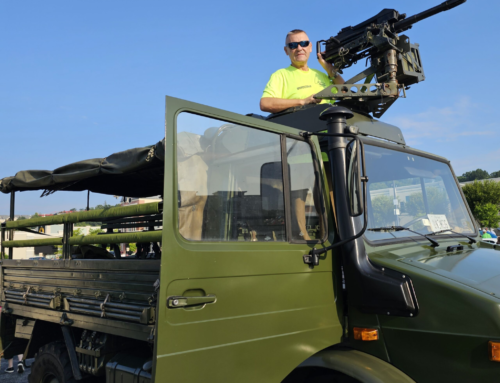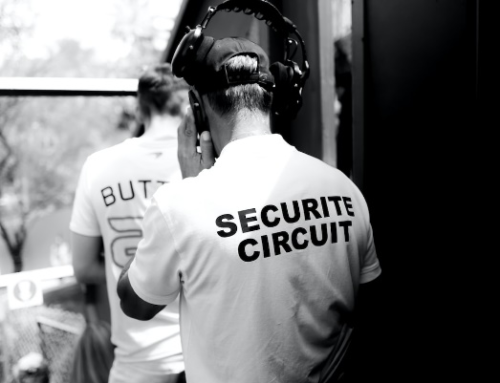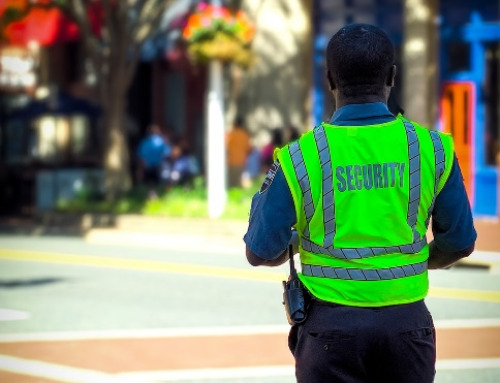With rising inflation leading to an increase in crime rates worldwide, there has been a growing demand for armed security services. As employment opportunities become more limited, many individuals are turning to criminal activity as a means of survival, which has heightened the need for professional security guards. Business owners and individuals alike rely on expert security personnel to patrol properties, prevent criminal activities, and ensure the safety of everyone involved.
However, effective security operations are not only about the physical presence of security guards but also depend significantly on good briefing strategies. A well-structured security briefing prepares security personnel for the challenges they may face throughout their shift, ensuring they are alert and ready to handle any situation that arises. If you’re hiring security for the first time or seeking to improve your current procedures, here are four key strategies for a successful briefing routine.
1. Discussing Notable Details from the Previous Day
One of the key responsibilities of a security guard is to remember and report incidents that occur throughout their shift. A daily briefing should start with a review of notable events from the previous day, including any security threats, criminal activity, or unusual occurrences. Discussing these events allows the team to stay informed, and it provides an opportunity to analyze what went well and what needs improvement. The briefing should also highlight follow-up actions and any necessary adjustments to security strategies, ensuring everyone is prepared for the day ahead.
2. Rehearsing Incident Reporting Protocol
Incident reporting is a critical aspect of security operations. A good security team must be well-versed in the company’s reporting protocols and should be able to recall these procedures quickly in the event of an emergency. During each briefing, security personnel should rehearse what types of events warrant a report, the steps involved in submitting a report, and the essential details to include. Regular rehearsals will ensure guards are always prepared to report incidents effectively, allowing the chain of command to respond promptly.
3. Discussing Potential Threats
The nature of threats to security can evolve over time, and it’s important that security personnel stay informed about emerging risks. During the morning briefing, it’s crucial to discuss any potential threats or vulnerabilities that could impact the facility. This includes updating the team on any changes in the surrounding area, such as a spike in local criminal activity or new threats specific to the location. Additionally, changes in national or global events may also affect security risks, such as protests, political unrest, or natural disasters. By regularly monitoring these developments, security personnel are better prepared to respond to a wide range of situations. This proactive approach helps security personnel remain vigilant and prepared for unforeseen challenges, ensuring that they are always one step ahead. Being proactive in identifying potential risks enables the team to take preventive measures, address weaknesses, and ensure the safety of the facility and its occupants.
4. Dividing Daily Responsibilities
A well-structured briefing should also assign specific duties to each security guard for the day. Clear delegation of tasks ensures that all areas are covered efficiently and that no part of the property is left unmonitored. It’s also essential to rotate daily responsibilities to prevent predictability and ensure criminals can’t easily detect a pattern. Guards should be assigned tasks based on their strengths and experience, and a rotating schedule ensures that all team members remain engaged and alert. Additionally, it provides an opportunity for guards to develop different skill sets, enhancing the overall capability of the security team. Rotating tasks also fosters teamwork and collaboration, as it encourages guards to work with different colleagues and adapt to different roles within the team. This builds a stronger sense of unity and improves communication, ensuring that everyone is well-prepared to handle any unexpected situation that may arise. By giving guards a chance to experience diverse responsibilities, you help maintain their motivation and adaptability, which are critical in maintaining a high level of performance throughout their shifts.

Conclusion
These four strategies are just a starting point for creating a comprehensive and effective briefing routine for security personnel. A successful security operation requires constant communication, preparation, and adaptability. A good morning briefing not only sets the tone for the day but also helps maintain a high standard of performance from your security team.
Get Premium Security Services with OPPS Protection
At OPPS Protection, we pride ourselves on offering reliable and comprehensive security services. Whether you need armed security for a special event or regular patrols to secure your business, we are here to help. Our team of highly-trained off duty police officers in Virginia, Maryland, and Delaware ensures that every situation is handled with care and precision. Contact us today to learn more about our services or to schedule a consultation.







Leave A Comment
You must be logged in to post a comment.